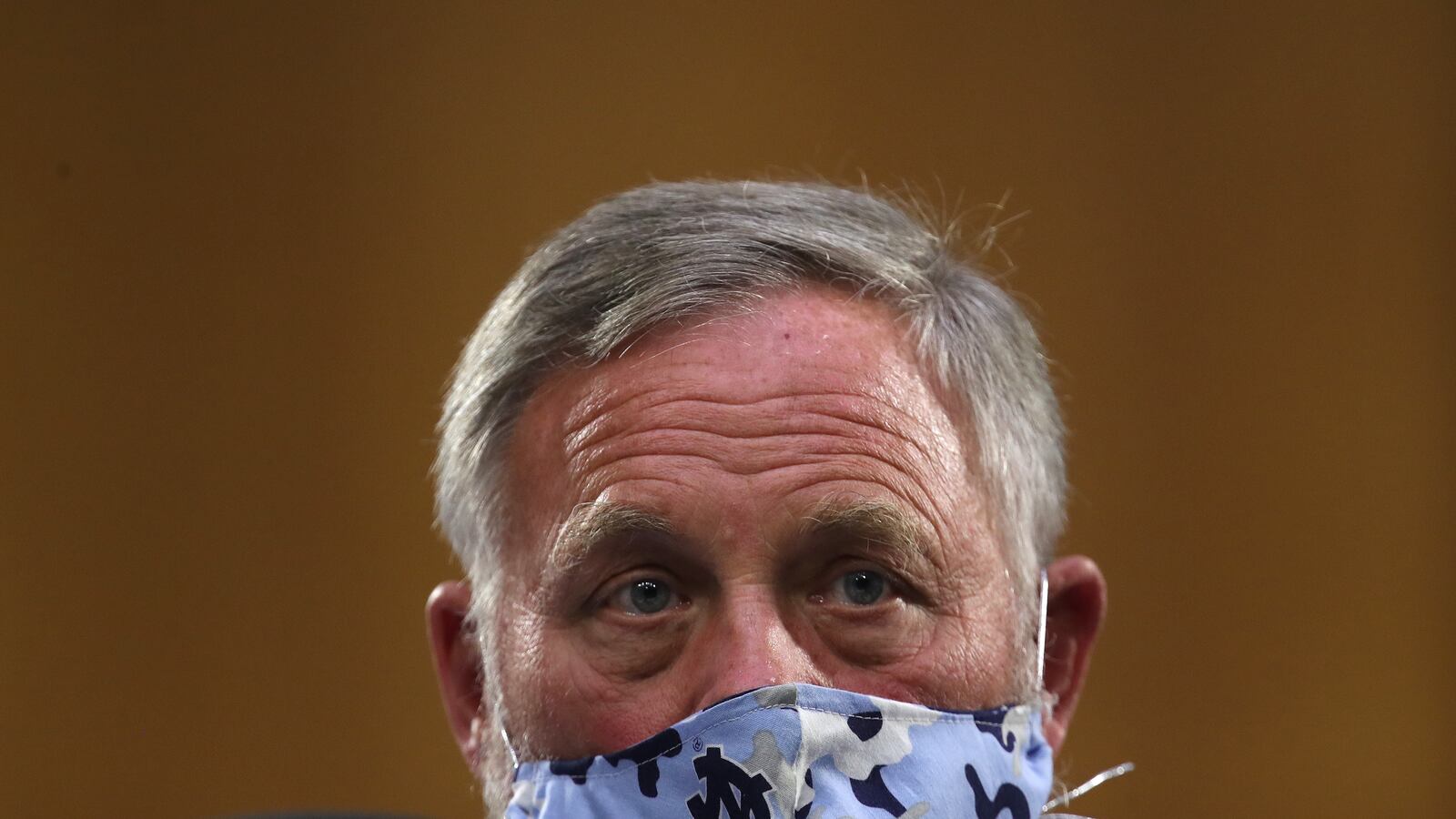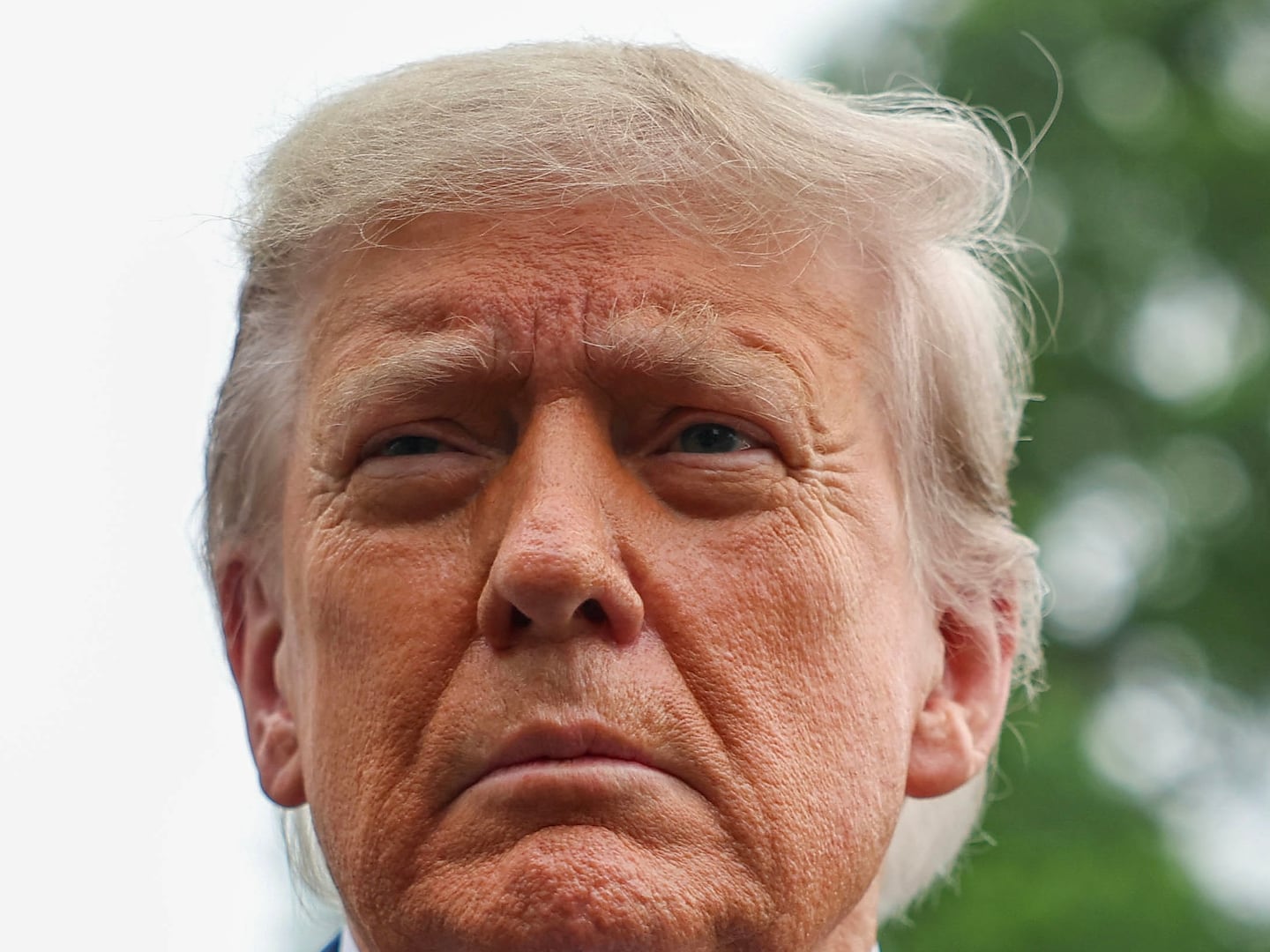Sen. Richard Burr (R-NC), who is under federal investigation for potentially illegal stock trading related to the coronavirus, will be stepping down from his chairmanship of the Senate Intelligence Committee as that probe continues, Senate Majority Leader Mitch McConnell (R-KY) confirmed on Thursday.
The move comes hours after agents from the Federal Bureau of Investigation showed up at Burr’s Washington-area home on Wednesday night with a warrant to search his cell phone for records relevant to the investigation.
In March, news outlets reported that Burr and his wife had sold as much as $1.7 million worth of stock as coronavirus fears spread in February, a sell-off that included investments in sectors, like hospitality, that were destined to be hit hard by the outbreak.
McConnell said he and Burr “agreed that this decision would be in the best interests of the committee and will be effective at the end of the day tomorrow.” A McConnell spokesperson did not comment on when the GOP leader would name a replacement for Burr atop the panel.
The extraordinary step of the Senate Intelligence Committee having his phone seized by the FBI pursuant to a search warrant raised immediate questions about the tenability of Burr’s position atop a committee with access to the most sensitive national security secrets the government possesses. Reportedly, the FBI also obtained a search warrant for the contents of Burr’s iCloud account.
At the heart of the FBI’s insider-trading investigation is determining if Burr abused his access to official secrets for his private financial gain.
Outside his Capitol Hill office on Thursday afternoon, Burr told reporters the probe “is a distraction to the hard work of the committee and the members and I think the security of the country is too important to have a distraction.”
A spokesperson for the committee’s vice chair, Sen. Mark Warner (D-VA), said on Thursday afternoon that he believed it was appropriate for Burr to step down, and hoped the insider-trading matter was resolved quickly.
Since the news of his stock trading broke, fellow Republicans have raised questions about Burr’s activity—even his fellow North Carolina Republican, Sen. Thom Tillis, who said that Burr owed the people of the state an explanation. The intel committee chief had also found himself a punching bag for allies of President Donald Trump, who have not forgiven him for conducting a probe into Russian interference in 2016—which included hauling the president’s son Don Jr. in for a deposition—that they believe was overly aggressive and misguided.
A lawmaker close to the Trumps, Rep. Matt Gaetz (R-FL), has frequently teed off on Burr’s trades. When news broke Wednesday night of the FBI raid, Gaetz tweeted: “Where’s Mitch?”
Unlike his House counterpart, Devin Nunes (R-CA), Burr has refrained from deriding the intelligence agencies as a “Deep State” cabal to bring down Trump. While also criticizing the Obama administration over its insufficient response to Russian election interference in 2016, the Senate committee under Burr recently reaffirmed the 2017 conclusions of the intelligence agencies that Russian election interference was designed to benefit Trump, a conclusion the president’s allies reject.
Similarly, Burr’s tenure atop the intelligence committee, beginning after the Republicans won control of the Senate in the 2014 election, began by restoring ties with the CIA after the committee, under Dianne Feinstein (D-CA), exposed the agency’s post-9/11 torture program. Burr led an effort to recall the classified copies of the committee’s 2014 Torture Report from around the government, in order to bury it.
Weeks after the insider trading reports appeared, Burr gave Trump’s dubiously qualified nominee to run the intelligence agencies, John Ratcliffe, his unqualified support. That struck a Justice Department trial attorney as connected.
“Burr’s reversal on the DNI nomination of Ratcliffe—who he knows is grossly unqualified—appears to be the product of Burr’s recognition that he’s in hot criminal justice water,” the attorney said, “and he, like Flynn, might soon find himself dependent on Trump to bail him out.”








